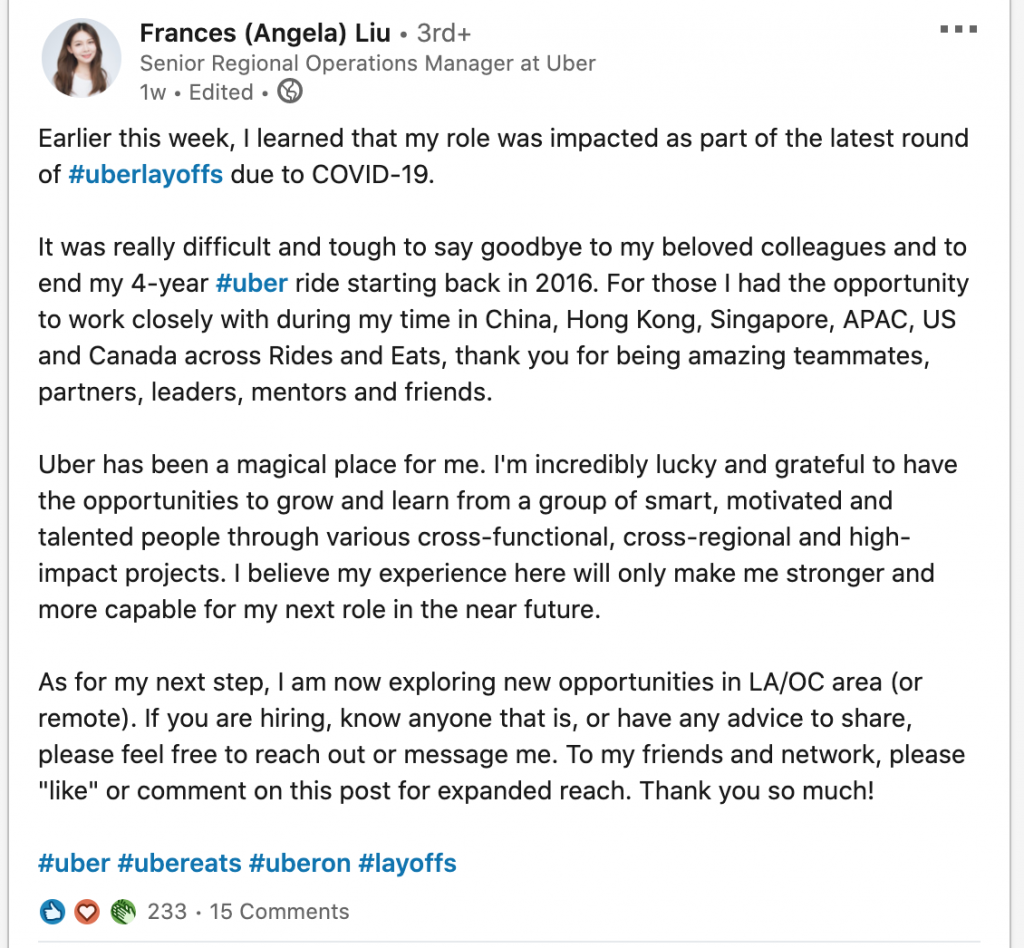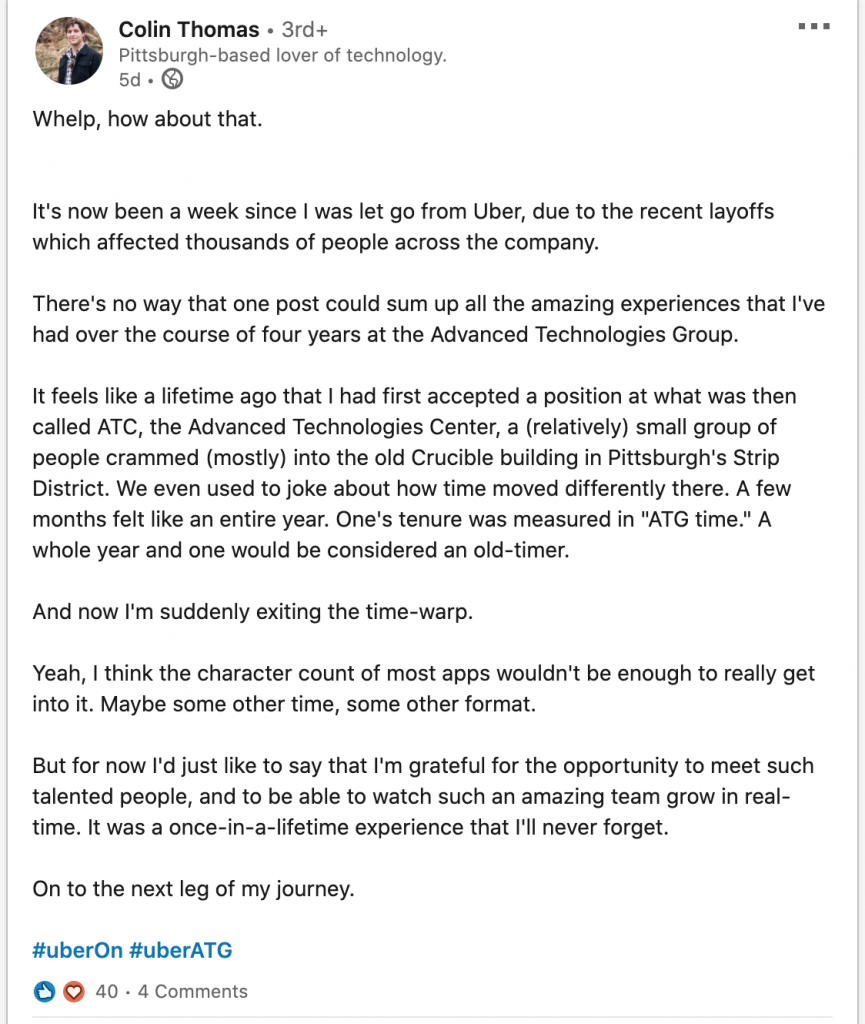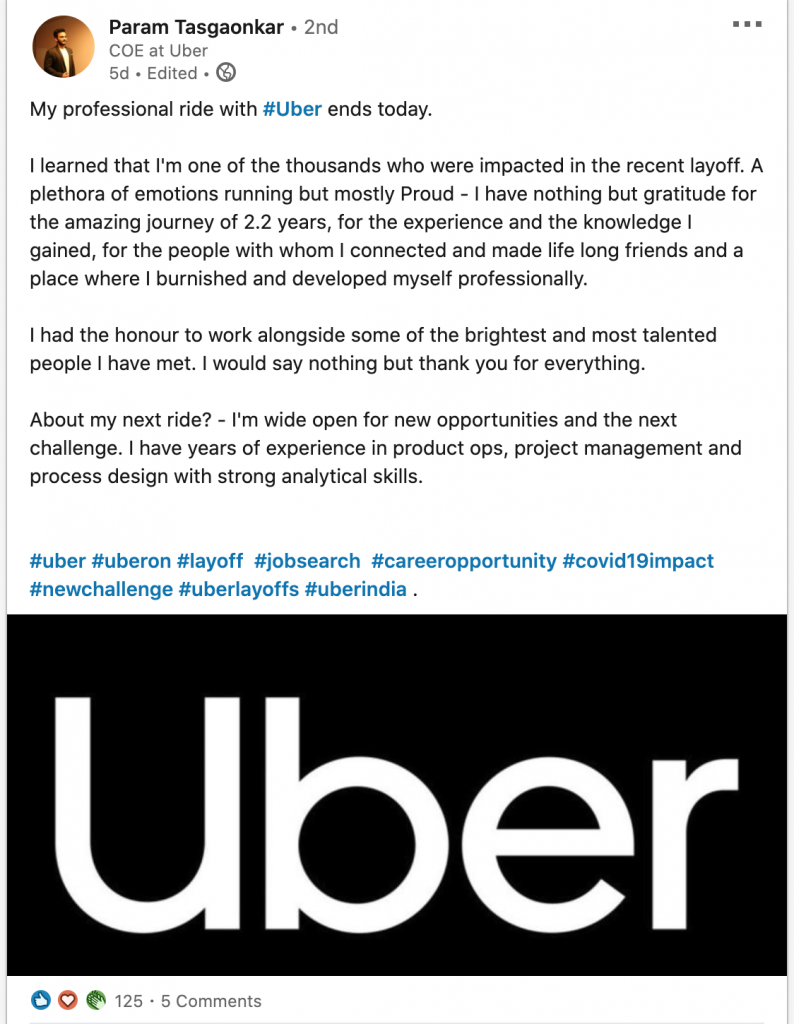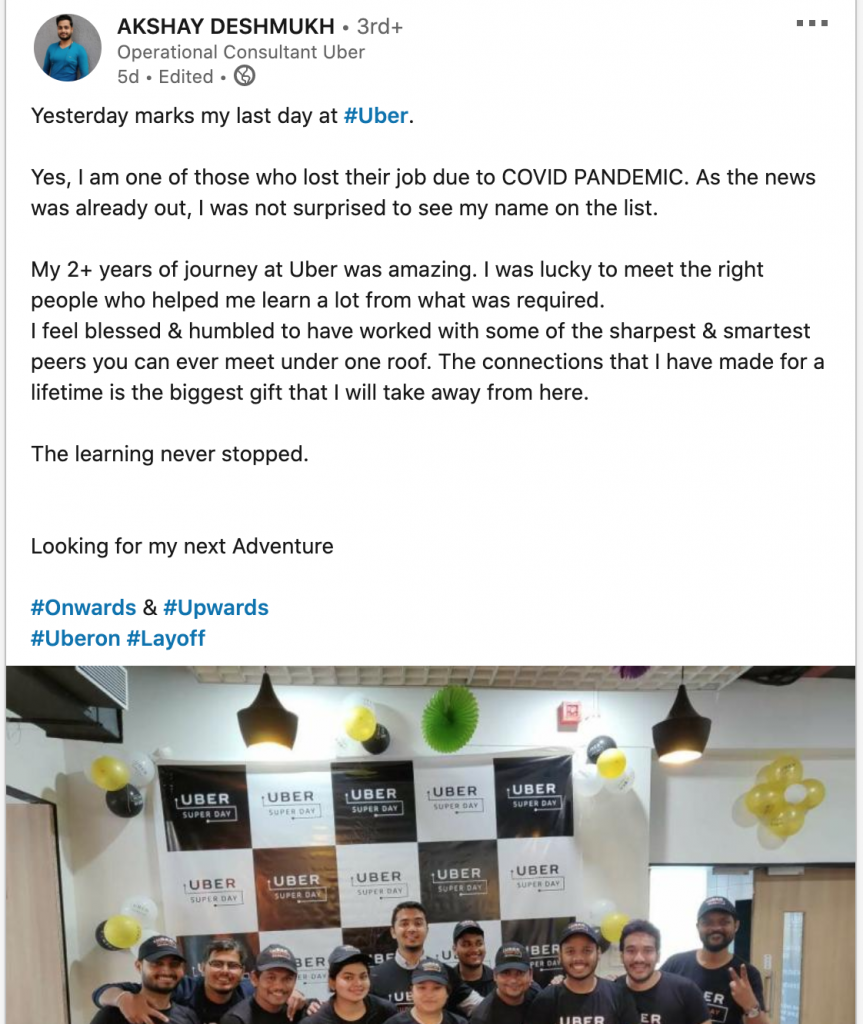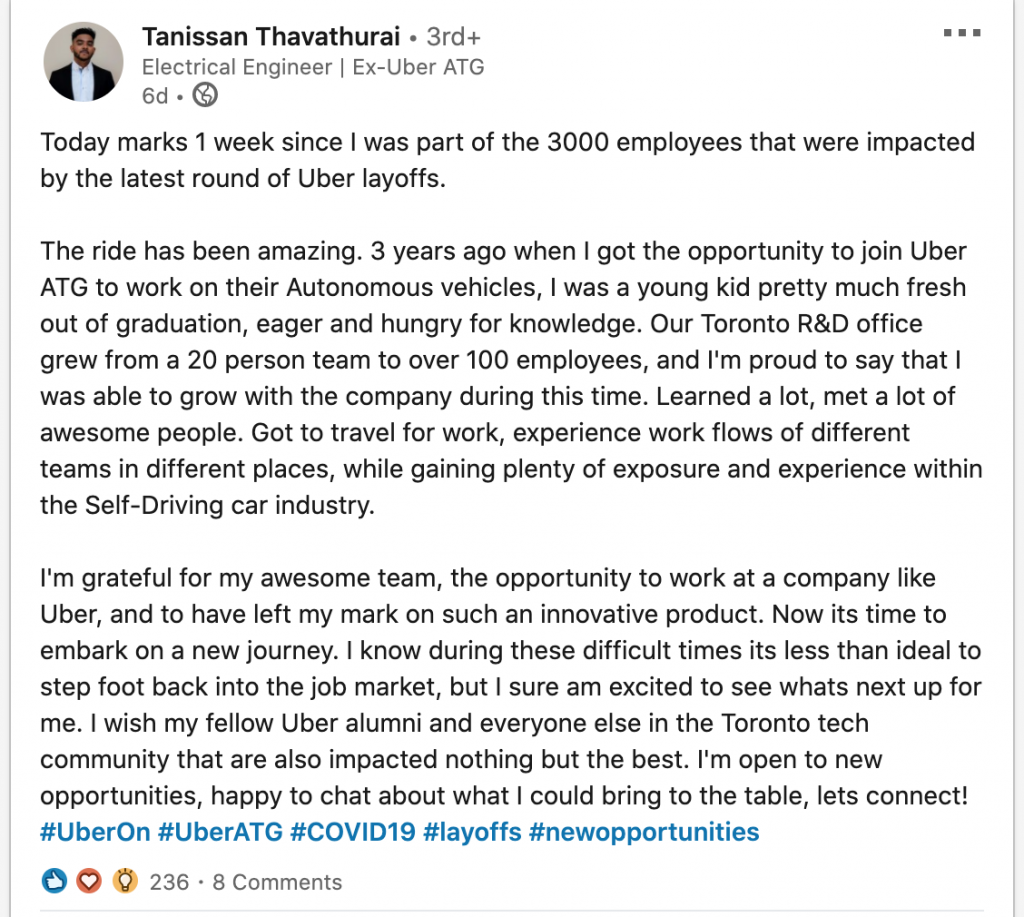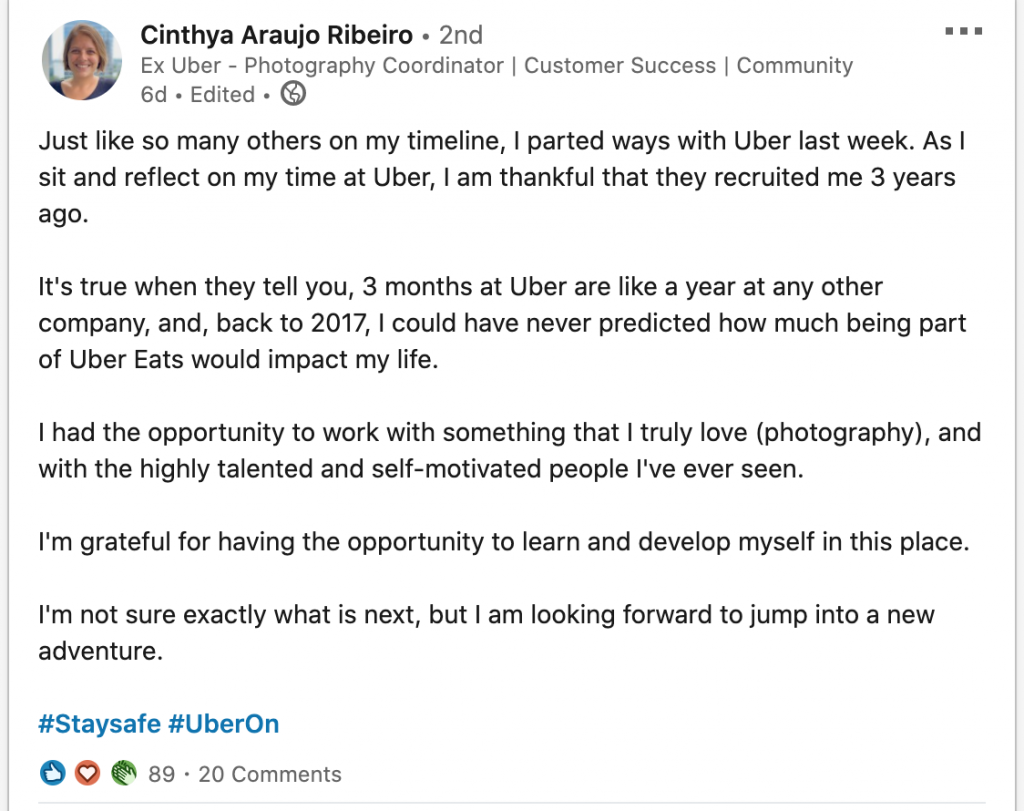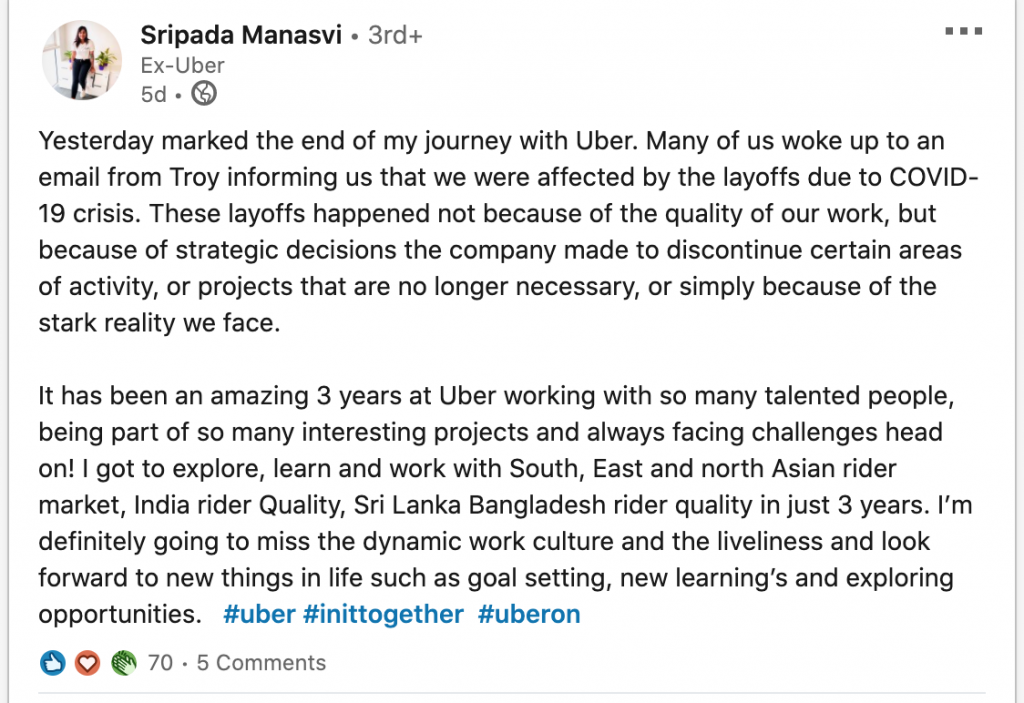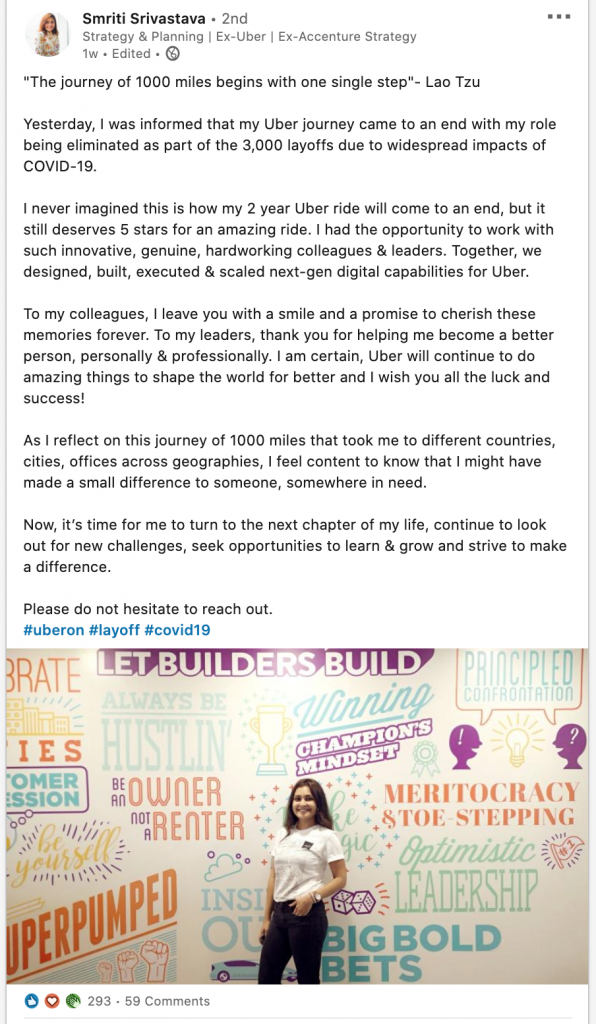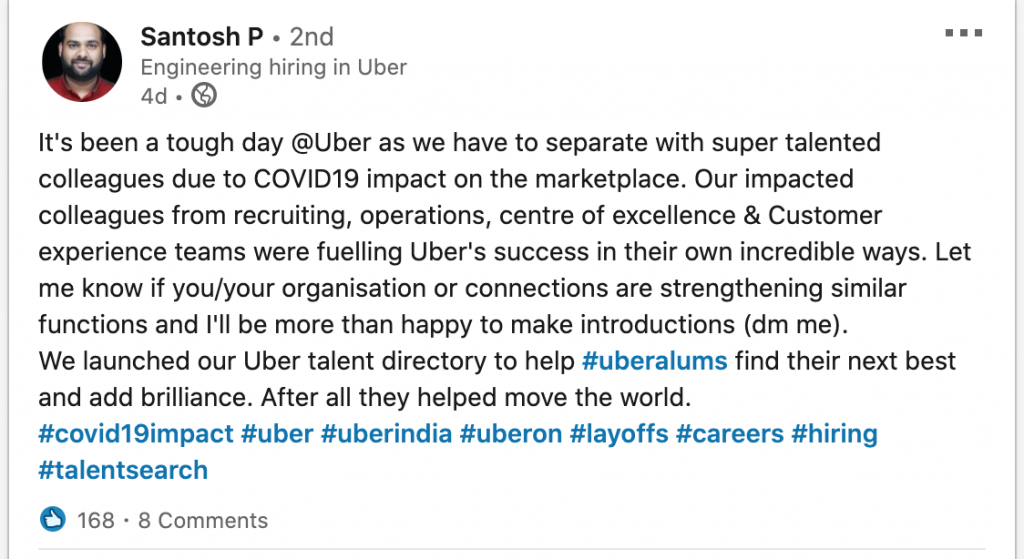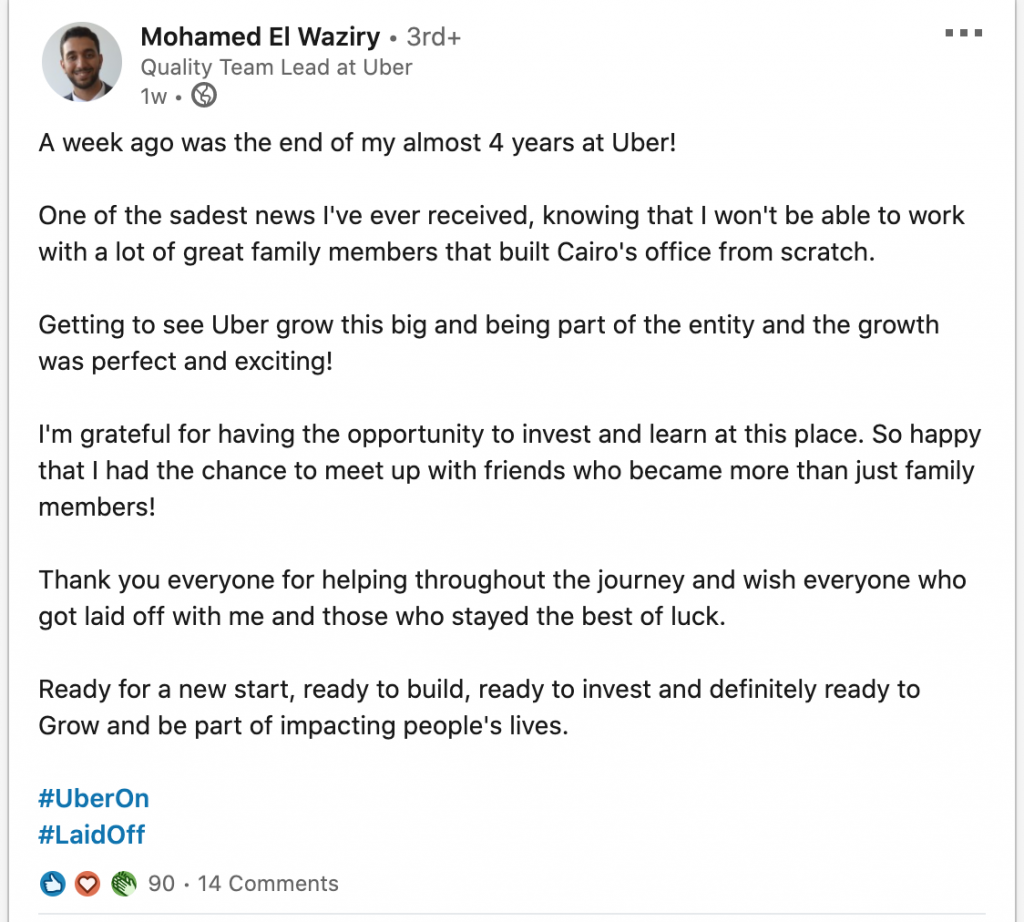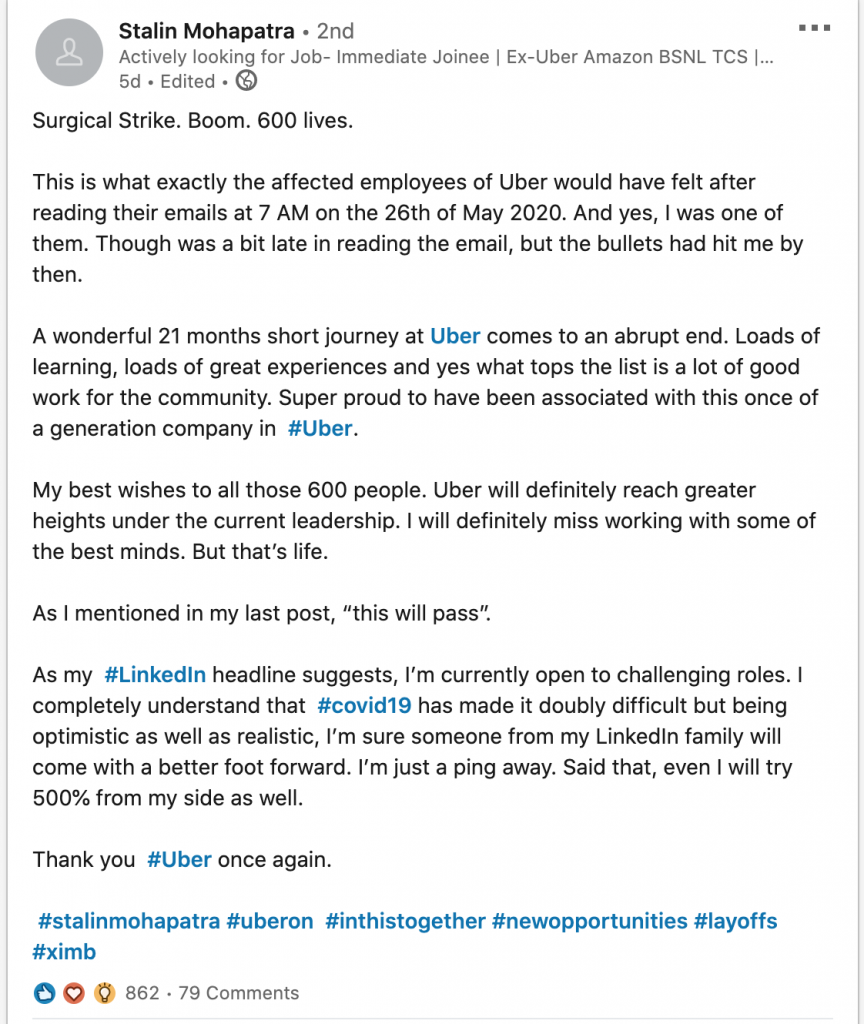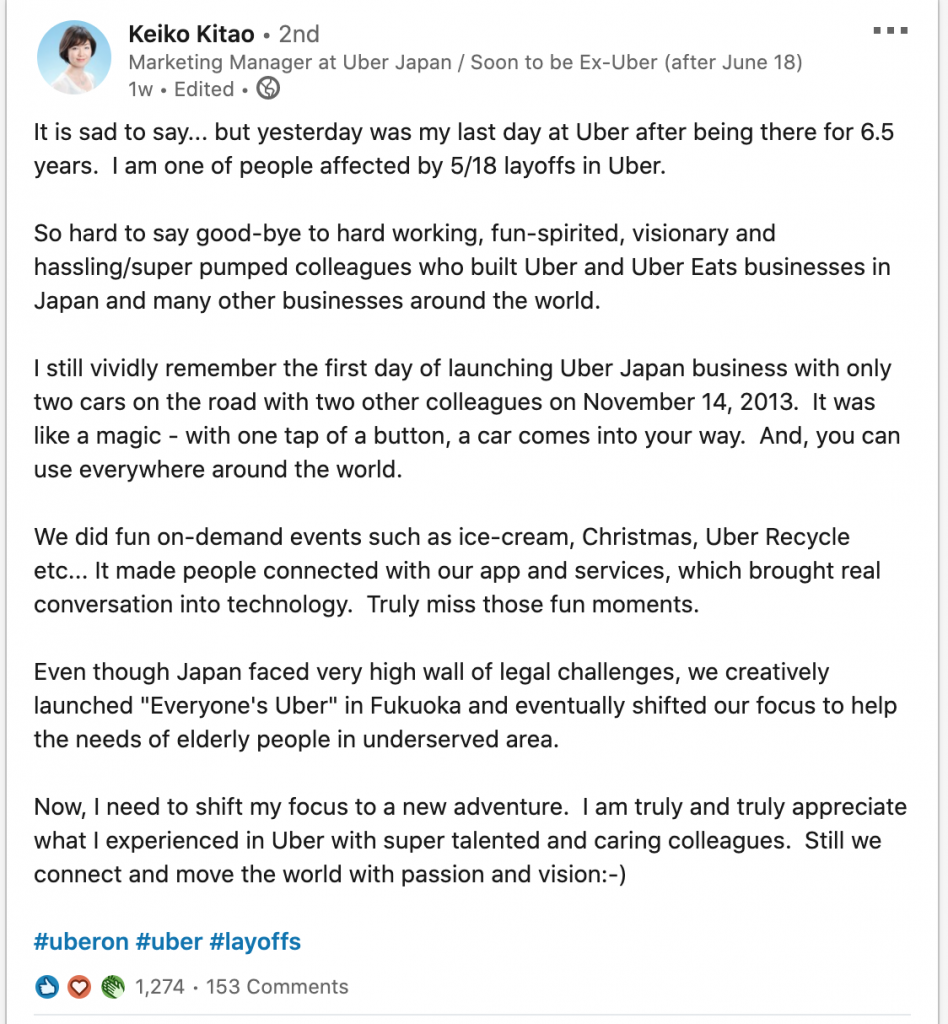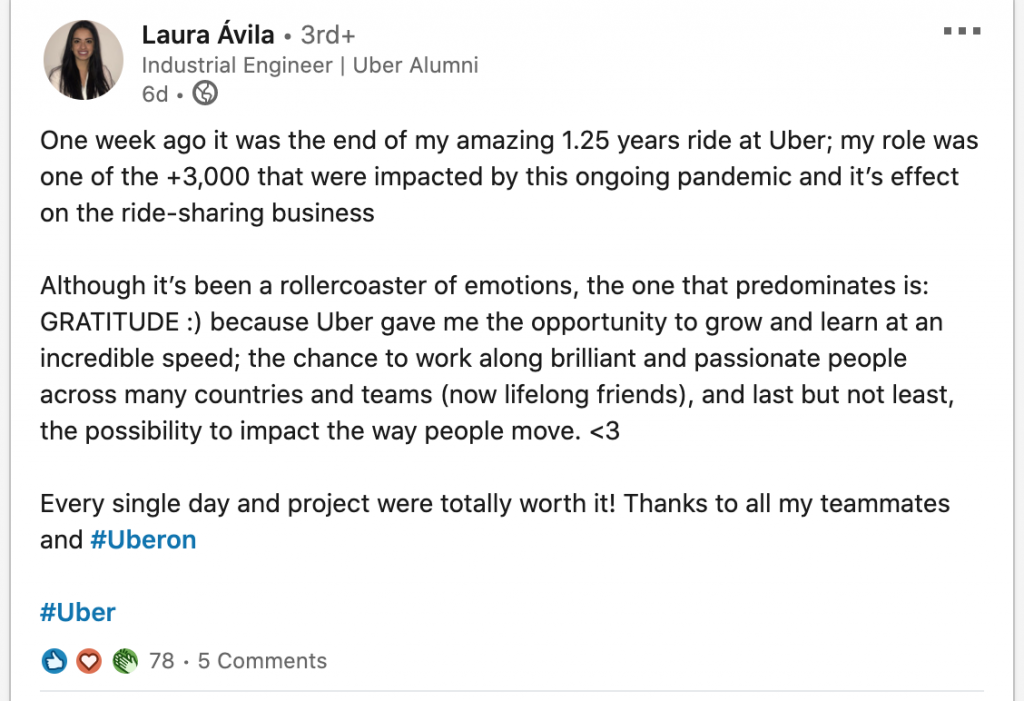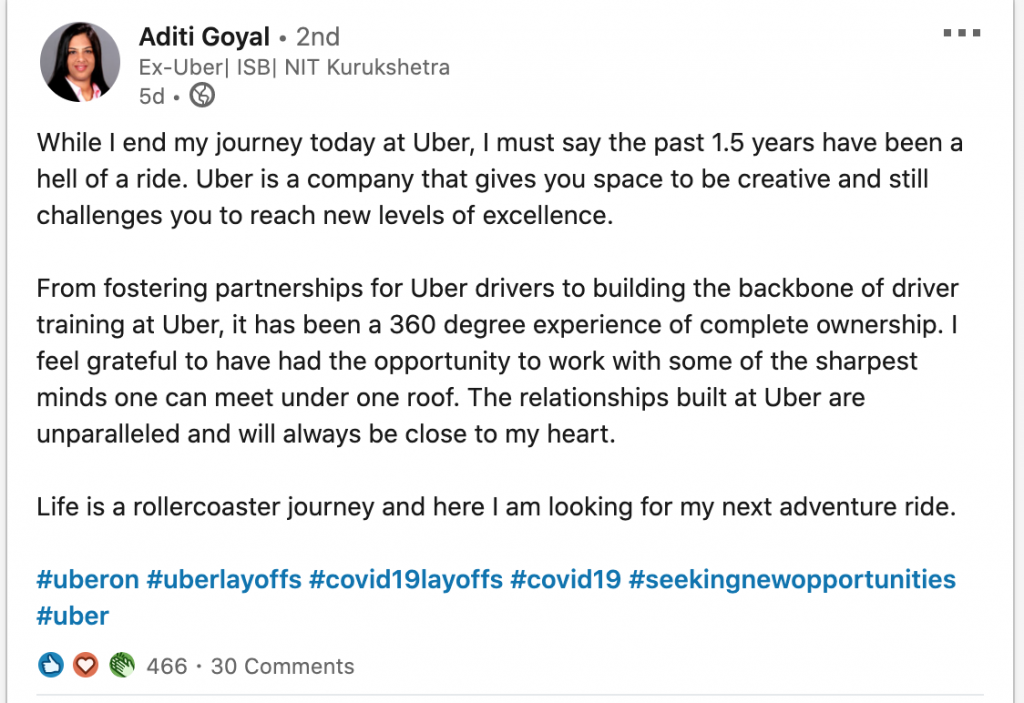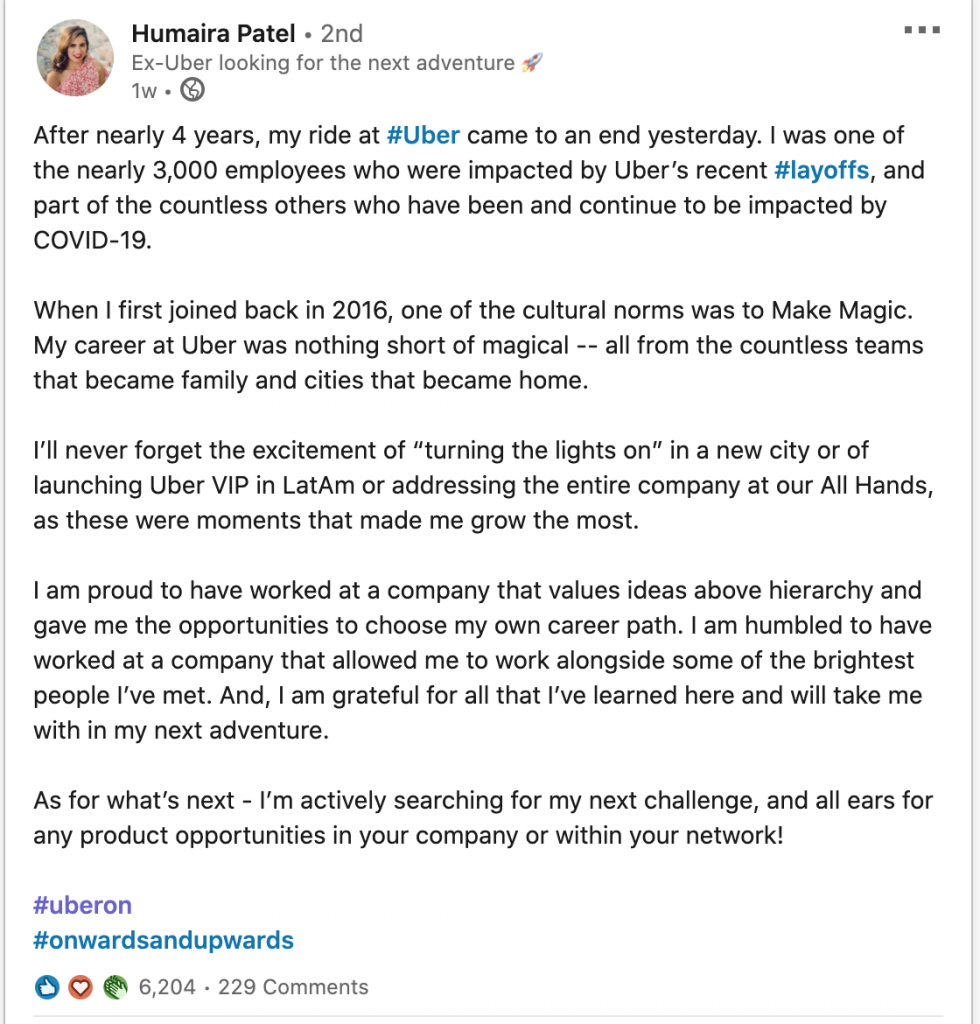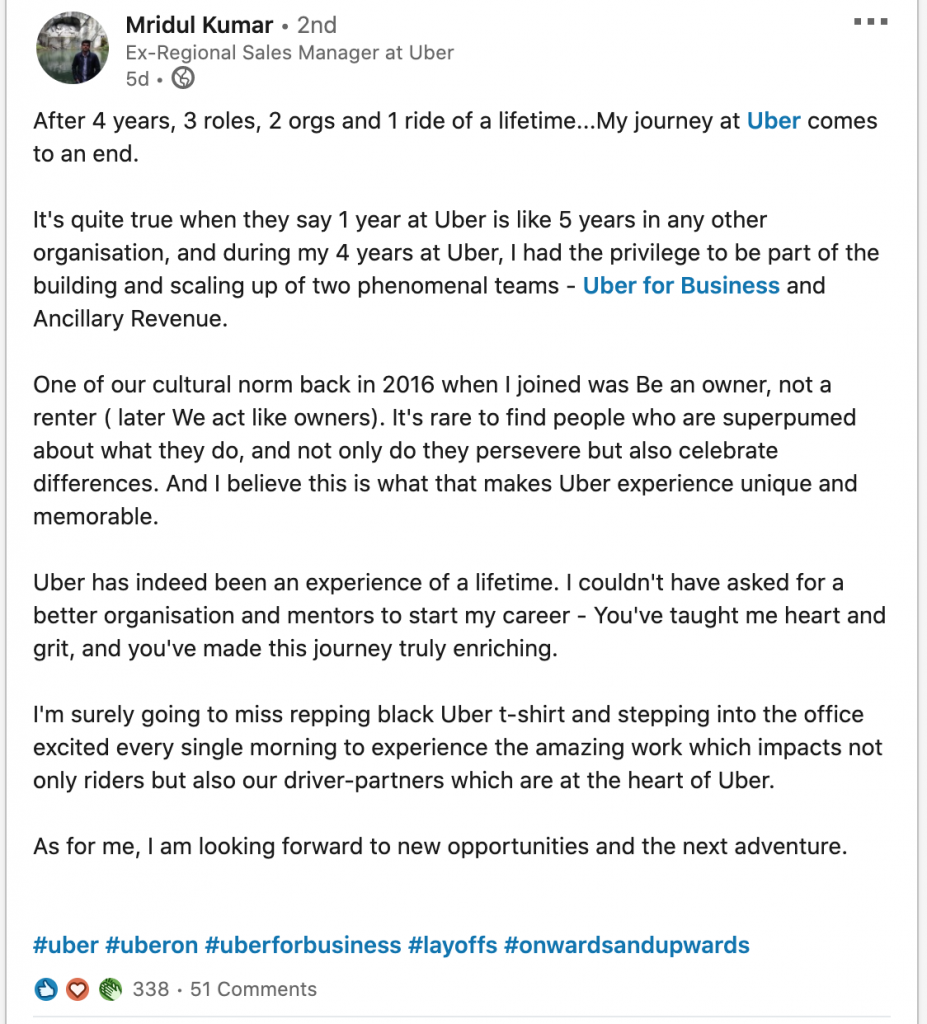
UPDATE:
I urge you to read the counterpoints from many ex-Uber and current-Uber employees on LinkedIn, in the comments thread, as a response to my view.
Here are 2 of those alternate perspectives, as a summary. More on LinkedIn.
The first is by Barnali Das, head of safety communications at Uber – India & South East Asia, via LinkedIn.
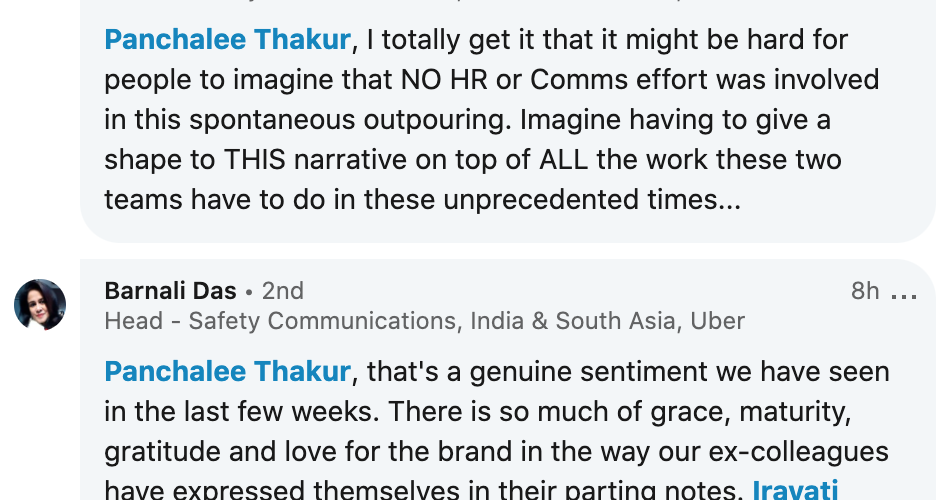
The second is by an ex-Uber employee affected by the layoffs – Karen Kopel, again on LinkedIn.
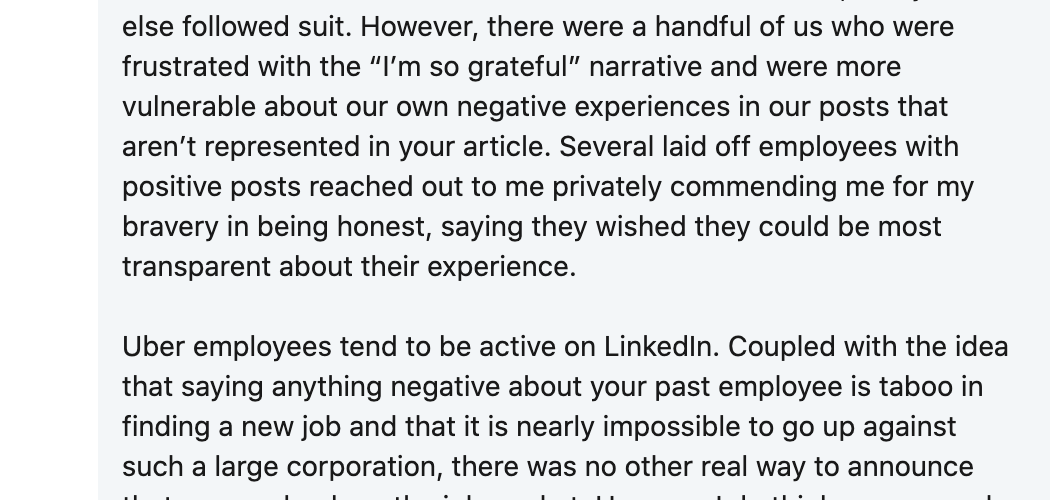
ORIGINAL POST (with edits to reflect on some of the new updates I realized I had missed, after seeing comments on LinkedIn):
Uber has laid off over 6,700 employees as a result of their business being impacted by the pandemic.
I noticed a couple of ex-Uber employees share their experience and the intent of looking for new jobs on LinkedIn last week.
But when an ex-colleague shared a few LinkedIn posts together and pointed out the strange similarity between them, my antennae perked up.
I checked LinkedIn and found hundreds of ex-Uber employees sharing their updates about being laid off from Uber. Here is a snapshot of a few such posts (click on each image to see the post)
While there are similarities between many posts in terms of the format (see the examples below), flow and specific words and sentences, the most important aspects connecting them all are two things:
1- lack of explicit negativity and
2- the demonstration of gratitude and positivity towards their ex-employer!
3- focus more on the Uber experience and less on selves and their own skills, in a post meant to announce to the world that they are back in the job market.




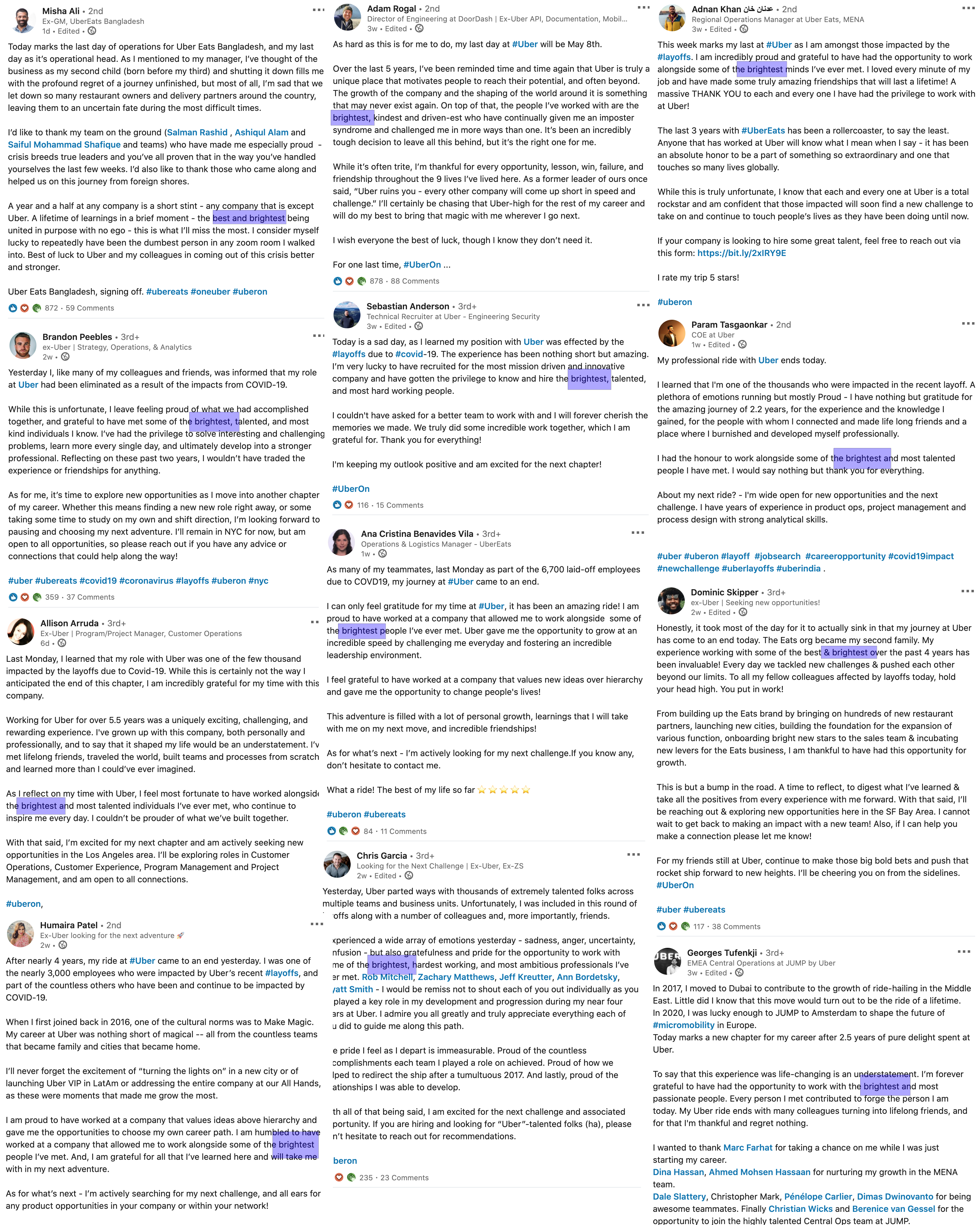
So why are hundreds of ex-employees talking more about Uber and less about their own skills while seeking opportunities?
1- (My assumption) Intelligent design: Aided by Uber in some form, as part of outplacement support. This may be in an evolved manner, explaining to them about the best ways of using LinkedIn to find opportunities, including on how to get more reach for their posts while doing so.
2- (that I gathered via LinkedIn comments) Organic: Genuine love for their ex-employer, even if in hundreds, post-lay-off. This seems improbable to me, as an outsider, particularly because of the more-than-necessary focus on explaining the tenure at Uber and less attention on their own skills and learning.
3- (that I gathered via LinkedIn comments) Herd behavior: They saw some of the initial posts with this template (of more focus on Uber experience) getting good traction, and followed suit. This is very plausible, even though the scale at which this is happening seems baffling, in a short period of time.
I’m only guessing if Uber did have a say in this (assumption 1), but I like the direction of this effort. To instill positivity in their ex-employees as they leave and offer the strategy of articulating gratitude towards their ex-employer and colleagues explicitly helps these people’s posts on LinkedIn stand out almost immediately, organically!
The general tendency on LinkedIn posts, when someone is laid off, is to evoke sympathy by talking about the job loss in a self-pitying tone and request a share or a comment to bump up the reach of the post. But, if the tone for the post (for being laid off) is different, it goes against the grain of the usual expectation and stands out.
From a corporate communications point of view, the organization gets a good name too! Readers of such posts would tend to look at Uber as an organization that nurtured positive-minded people who offer gratitude for their ex-employer and ex-colleagues generously even as they have been forced to leave the organization!
This is a win-win PR and corporate communications strategy, even during layoffs, generally associated with negative publicity!
I found at least one more counterpoint to all this goodness while researching more on these posts – and this is based on how people would end up thinking about it when they see more than one post on a similar tone). On Blind, the anonymous professional network (the extreme opposite of LinkedIn; sort of a bizarro-LinkedIn), these posts are being discussed in a thread.
One comment says, “They don’t really have to kiss Uber’s ass to get another job”.

It’s a good perspective. But I’d argue that this so-called ‘kissing Uber’s ass’ is an integral part of showcasing positivity. Being positive because of a job loss is one thing, but adding a gratitude-filled note about the company that fired you adds a new layer of positive attitude to the same message. Yes, Uber benefits in terms of the positive perception too, but that part is intricately tied to the overall positivity that needs to be showcased for the effort to work for the laid-off employees.

